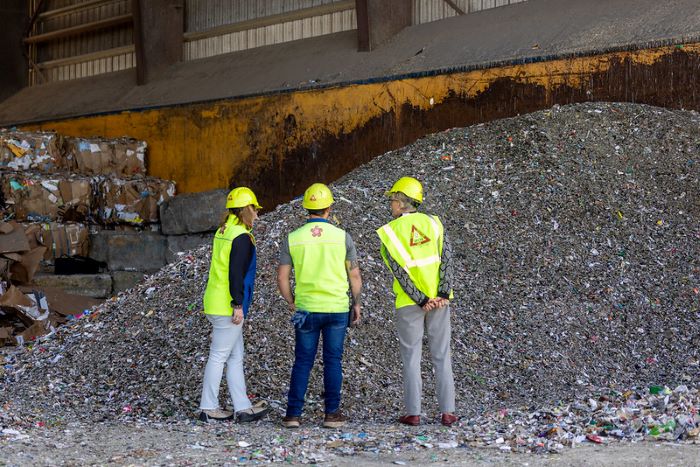
Glass sourced from Seattle and the surrounding areas saw temporary disruptions due to the loss of a major end user. | Photo courtesy Seattle Public Utilities
Several months after the primary end user for Seattle-area curbside glass pulled out of the area and disrupted regional glass collection, logistics upgrades have enabled programs to resume moving material as usual.
Glass packaging giant Ardagh last fall announced it would shut down its bottle manufacturing facility, laying off 244 workers and removing a major cullet buyer from the area. The move disrupted recycling programs in several ways.
Sibelco, formerly Strategic Materials, operates a glass beneficiation plant in Seattle, where the City of Seattle and outlying communities’ glass is sent for pre-processing before shipment to a buyer, primarily Ardagh. The closure meant Sibelco has had some challenges moving material with the same frequency it was used to.
“We slowed down the amount of glass coming into the facility to keep the volume manageable until a more robust solution was identified but continued to process and ship glass during this time,” Laura Hennemann, director of corporate affairs at Sibelco, told Resource Recycling this week.
When Ardagh closed, Hennemann noted the challenge was primarily a void in the market for a specific color of glass.
Seattle Public Utilities informed the public about the glass challenge, but instructed customers to continue to put glass in their curbside carts. Other programs in the area suspended collection, including Port Angeles, a city 80 miles northwest of Seattle, which stopped accepting glass at multiple transfer stations.
The City of Tacoma, some 30 miles from Seattle, also temporarily paused glass collection, but Tacoma started up again in January of this year with a new processor: “Following a thorough environmental and economic analysis, the City has partnered with Glass to Glass in Portland, Oregon, to ensure Tacoma’s glass is recycled into new products,” the city told customers.
Stakeholders formed a regional Glass Recycling Roundtable to develop short- and long-term solutions to the market struggle.
Now, after several months of disruption, the Seattle-area challenges have eased. Seattle Public Utilities in June announced that “glass recycling is back in action!” And just last weekend, Port Angeles restarted its drop-off collection program.
The biggest change is that Sibelco has “upgraded its rail transportation system,” the Seattle announcement stated, and that “new commercial partners in the western U.S. are now buying recycled glass.” More than other recyclables, rail access is particularly important for moving glass due to its weight, which can make trucking long distances cost prohibitive.
Hennemann declined to share additional details about the rail investment or new customers.